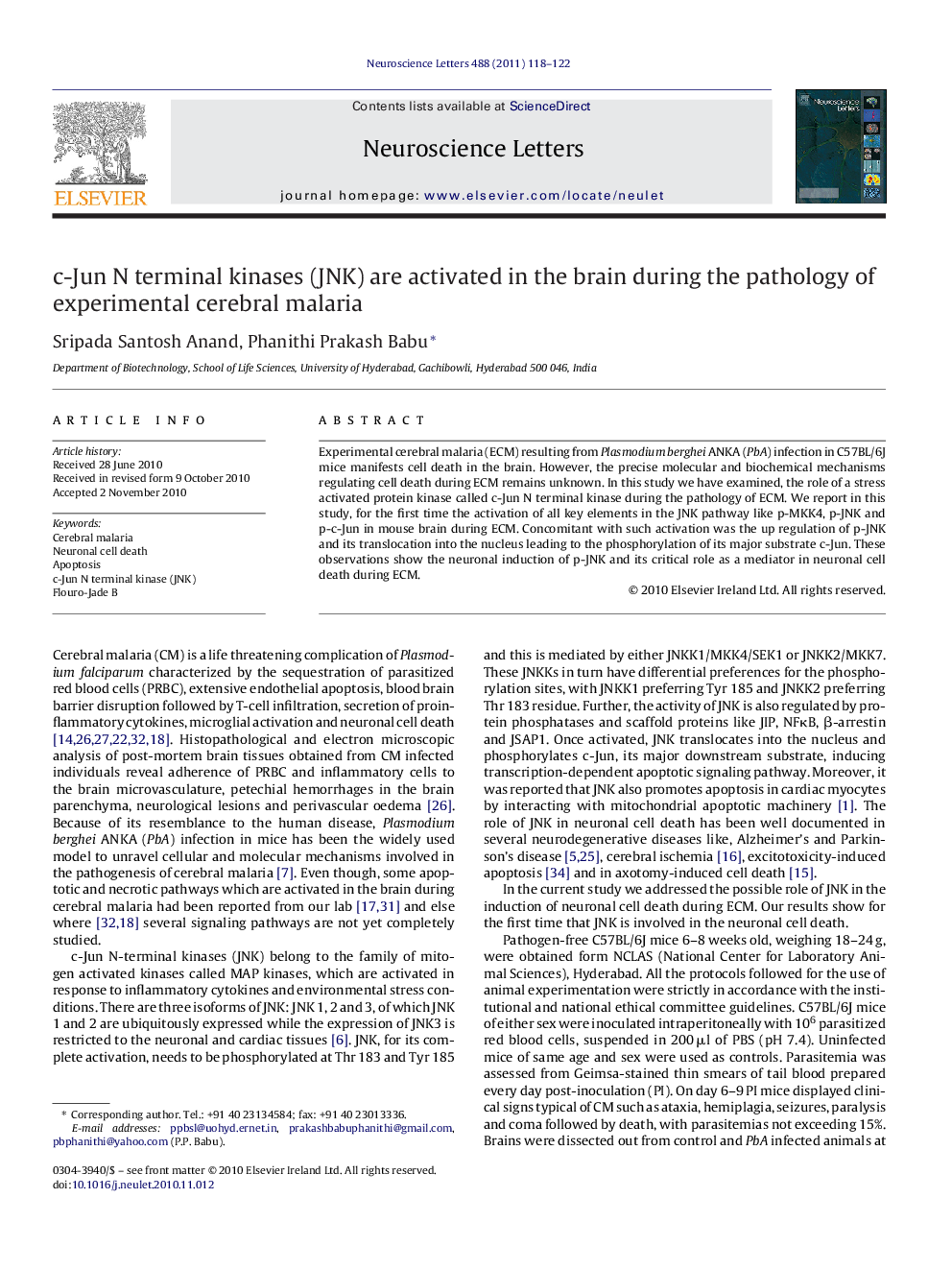| Article ID | Journal | Published Year | Pages | File Type |
|---|---|---|---|---|
| 6285296 | Neuroscience Letters | 2011 | 5 Pages |
Experimental cerebral malaria (ECM) resulting from Plasmodium berghei ANKA (PbA) infection in C57BL/6J mice manifests cell death in the brain. However, the precise molecular and biochemical mechanisms regulating cell death during ECM remains unknown. In this study we have examined, the role of a stress activated protein kinase called c-Jun N terminal kinase during the pathology of ECM. We report in this study, for the first time the activation of all key elements in the JNK pathway like p-MKK4, p-JNK and p-c-Jun in mouse brain during ECM. Concomitant with such activation was the up regulation of p-JNK and its translocation into the nucleus leading to the phosphorylation of its major substrate c-Jun. These observations show the neuronal induction of p-JNK and its critical role as a mediator in neuronal cell death during ECM.
Research highlightsⶠInvestigated the activation of JNK pathway in the mouse brain following infection with PbA. ⶠThis is the first evidence of JNK mediated neuronal cell death in experimental cerebral malaria. ⶠPhosphorylated forms of all the key elements in the JNK signal transduction pathway, viz., MKK4, JNK, and c-Jun were significantly upregulated in infected mouse brains compared to uninfected controls. ⶠImmunostaining of control and terminally ill mouse brain sections with p-JNK, revealed robust increase of p-JNK positive cells indicating activation of JNK in infected brains. ⶠDouble labeling experiments revealed that Flouro-Jade B positive cells are also positive for p-JNK, implying that p-JNK plays a crucial role in mediating neuronal cell death.
